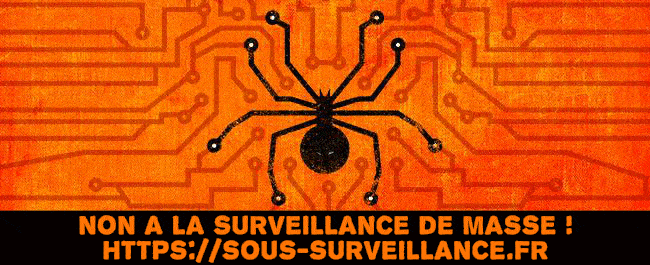Last week, the French Constitutional Council declared unconstitutional a section of the French Intelligence Law adopted last year that authorised, without meaningful privacy safeguards or oversight, authorities to monitor and control wireless communications. Responsible for this victory for our right to privacy is the Exégètes amateurs, the legal team for La Quadrature du Net, the French Data Network, and FFDN, the Federation of Non-Profit Internet Service Providers.
Ending a surveillance practice in place for 25 years
Surveillance of wireless communications has been happening in France for 25 years, beginning when wireless communications were not routine. Last year, the French Intelligence Law reaffirmed and extended this practice, in addition to authorising other types of far-reaching surveillance. The Exégètes amateurs initiated this case after the Intelligence Law was adopted, questioning whether surveillance of our wireless communications is valid.
For those who don’t know, surveillance of wireless communications covers a wide range of exchanges, which includes communications:
- between two bluetooth devices (phones, TV, printers, and more);
- over a device connected by wifi, 3G or 4G;
- between a mobile phone and its relay antenna;
- between a wireless payment card and its station;
- between a card reader and their chip (credit card , social security card, driver’s licence card chip, and more).
In its decision, the council found that due to their disproportionate scope, unlimited purpose and a lack of safeguards and oversight mechanism, the measures allowing surveillance of wireless communications violate “the right to privacy and the confidentiality of communications” and are therefore unconstitutional. However, the council did not entirely strike down the practice, and set out a December 2017 deadline for the government to adopt a new law that includes the necessary robust safeguards for human rights. Until then, the council has issued a set of requirements to limit abuse:
- the measures allowing surveillance of wireless communications declared unconstitutional can no longer be used for data collection or the interception of communications and,
- every request for surveillance of wireless communications must be overseen by an official body.
The council decision is an opportunity for the French government to bring the law in line with human rights obligations. We encourage lawmakers to apply the International Principles on the Application of Human Rights to Communications Surveillance to the review of measures on the surveillance of wireless communications, and indeed, to every form of communications surveillance in France. Authorities should not be able to bypass human rights protections for communications because of how they take place, and there is no reason to implement a lower standard for mobile communications than for those that take place using a fixed line. To assist in that process, Access Now has developed an implementation guide for putting the principles into practice.
More legal challenges to come
Last week’s decision is an important victory, and it might just be the first, as there are now several challenges to the Intelligence Law that have been filed in French and European courts. For example, a group of more than a hundred journalists are challenging mass surveillance measures established in the law before the European Court of Human Rights in Strasbourg, challenging its interference with the fundamental rights to freedom of expression and access to information. The Exégètes amateurs are also working on pending cases fighting surveillance measures in France, actively working to help the people of France take back their right to privacy, one court case at a time.
Image: La Quadrature du Net
